|
“Because children have abounding vitality, because they are in spirit fierce and free, therefore they want things repeated and unchanged. They always say, "Do it again"; and the grown-up person does it again until he is nearly dead. For grown-up people are not strong enough to exult in monotony. But perhaps God is strong enough to exult in monotony. It is possible that God says every morning, "Do it again" to the sun; and every evening, "Do it again" to the moon. It may not be automatic necessity that makes all daisies alike; it may be that God makes every daisy separately, but has never got tired of making them. It may be that He has the eternal appetite of infancy; for we have sinned and grown old, and our Father is younger than we.” G.K. Chesterton, Orthodoxy Today on the feast day of St. Therese of Lisieux, affectionately known as the Little Flower, I turn to my sons’ example in accepting everything completely from God. My almost two-year-old is predictable: he loves blueberries, watching the garbage truck pick up trash on Mondays and Fridays, and playing in the backyard. Recently he has taken to playing with a giant cardboard box that my husband engineered into a “cottage” with a window and a workable door. The joy and excitement he exudes each morning playing with his cardboard cottage didn’t strike me at first. But after a few rounds of him serving me imaginary chocolate milk and tea from his little abode, I realized that this joy, the same joy and freedom he has when running ferociously to the front of the house to see the garbage being picked up, is the joy and freedom St. Therese of Lisieux wrote about and emulated in her life. “To remain a child before God means to recognize our nothingness, to expect everything from God. It is not to become discouraged over our failings, for our children fall often, but they themselves are too little to hurt themselves very much.” St. Therese of Lisieux Therese gives us the example of radical abandonment to the Father’s will. When we take a snapshot of her life—where she lived most of her life, whom she met, what accolades she was awarded—we see that her life was not much in worldly standards. And yet, Therese is honored with the title “Doctor of the Church.” Her writings and her example of charity beckon us to take a closer look at this simple and great saint. While Saint Therese is a heavily pestered saint when it comes to intercession (as her intercession is known to be great) and her quotes are seen often, today let us take after her childlikeness and see the world through her eyes with childlike abandonment to God. I encourage you to find five beautiful things in the mundane of your day that your eye has not yet “truly” seen before. Thank and praise God for the life He has given you, in all its sufferings and joys, and ask for St. Therese’s intercession in seeing the beauty in the mundane. For more resources on Marriage and Family, please click here. **This blog was originally published on October 1, 2020.**
0 Comments
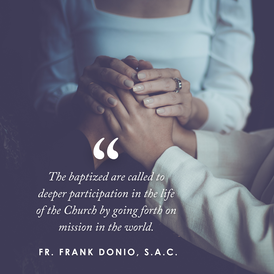 As the Church arrives at the first session of the Synod on Synodality, it is important to look at the three words associated with it – communion, participation, and mission. These are at the center of the dialogue and discernment that will occur. They are part of an ongoing reflection on the role of the baptized in the life of the Church, particularly from the Second Vatican Council onward. We are in communion with the Most Holy Trinity and each other in the Body of Christ, the Church. The baptized are called to deeper participation in the life of the Church by going forth on mission in the world. Each is co-responsible for the mission of Christ and the Church. As Pope Francis notes, “The Synod has three key words: communion, participation, and mission. Communion and mission are theological terms describing the mystery of the Church… Participation is a requirement of the faith received in baptism” (Address for the Opening of the Synod). The whole synodal process is a discernment in the Holy Spirit to examine how we as Church are on mission in the world. Have we closed ourselves off by becoming self-referential or are we moving outward as witnesses of Christ? Pope Francis is clear about what this discernment of the Synod is and is not. “I want to say again that the Synod is not a parliament or an opinion poll; the Synod is an ecclesial event and its protagonist is the Holy Spirit. If the Spirit is not present, there will be no Synod” (Address for the Opening of the Synod). We at Catholic Apostolate Center offer many resources to learn more about the upcoming first session of the Synod of Synodality, which will begin on October 4th and continue throughout the month, including a recent episode of our podcast, On Mission, with Dr. Susan Timoney, Associate Dean for Graduate Ministerial Studies in the School of Theology and Religious Studies at The Catholic University of America. Dr. Timoney gives an overview of the synodal process thus far and what is to come. It is worth taking the time to listen! Please keep all those involved in the Synod in your prayers. May the Charity of Christ urge us on! In God, the Infinite Love, Fr. Frank A few Sundays ago, our parish priest mentioned a phrase in his homily that stuck with me for several days. He said, “The most important person in the world is the one who is in front of you right now.” I think this is a phrase St. Vincent de Paul would live by if he were among us today. St. Vincent de Paul is well known for his service to the lowliest members of society. He was a French Catholic priest who dedicated his priestly career to the community outreach and evangelization of the poor by founding the Congregation of the Mission. Through his example, St. Vincent de Paul teaches us to see Christ in the poor and suffering, helping us to live out Jesus’ calling, “Whatever you did for one of these least brothers of mine, you did for me” (Matthew 25:40). St. Vincent de Paul said, “The poor have much to teach you. You have much to learn from them.” As we speak and listen to the poor, we come to know God better and are humbled by the circumstances of others. By extending a helpful hand or lending an ear to the less fortunate, we show God’s love and acceptance of all. There are many ways we can demonstrate this love and acceptance. Consider one of the following:
This last point is an important one. Although we may not encounter the financially poor every day, we do face people daily who may be poor in their spirituality, relationships, knowledge, and other ways. By making an effort to lend a listening ear or helping hand to coworkers, friends, family, people in the grocery store, those walking to work or traveling on the subway in addition to the homeless begging on the streets, we can help to achieve the work of God on earth a little bit day by day. I recently came across a picture quote that read, “It’s worth the trouble to become the person you were meant to be.” I was instantly reminded that God has an individual plan for me, just as he does for everyone else. God utilizes us to do his good work in our communities, striving to serve both those who lack financial resources or are poor or dejected in spirit. St. Vincent de Paul said to his priests, “Do the good that presents itself to be done…God lets us know he wants of us. We belong to him and not to ourselves. If he increases our work, he adds to our strength.” We must be open to the good work God wants to accomplish through us. To do this, we must continue our daily prayer, pay attention to opportunities where God is calling us to serve, and keep an optimistic heart. St. Vincent de Paul, pray for us! **This blog was originally published on October 6, 2016.** **This image is from: http://vincentians.com/en/vincent-paul-and-creative-love/** A few weeks ago, the Pew Research Center released an article titled “Just one-third of U.S. Catholics agree with their church that Eucharist is body, blood of Christ.” Immediately after the study’s release, social media erupted with reactions of disbelief, shock, and anger, as well as theories of how to “fix this,” including greater catechesis and adjustments to our general liturgical practices. Despite the immediate reaction, there is no need for panic, as Christ assures the Church that “the gates of the netherworld shall not prevail against it,” (Matthew 16:18). Furthermore, jumping to such dire conclusions after one survey is not necessarily good pastoral or catechetical practice. As the Church examines the status of belief in the Real Presence and how to cultivate a greater understanding of that reality, she is also very aware of the need to deepen our encounter with Christ. As we ponder Christ’s presence in the Eucharist, we must ask ourselves if we have truly encountered him. In his encyclical letter Evangelii Gaudium, Pope Francis suggests that we “look at those first disciples, who, immediately after encountering the gaze of Jesus, went forth to proclaim him joyfully: ‘We have found the Messiah!’ (Jn 1:41).” In the end, how we catechize and what our liturgical practices are both require deeper reflection and greater discernment as to how God is calling us to use them as methods of ongoing conversion and evangelization. The doctrines and dogmas that we teach, how we celebrate the Mass, how we best serve our fellow man, are all likely to fall on deaf ears if they are not built on a deep and personal encounter with the Risen Christ. To examine this issue of Eucharistic belief, we should first look to chapter 4 of Christus Vivit, where Pope Francis reminds young people (and all of the people of God) that God is love, he saves us, he gives us life, and he is alive! If these four truths, which are expounded upon in good catechesis and experienced in their fullness in the Mass, are not understood deeply and intimately in the heart of every baptized Catholic, then moving forward will be extremely difficult. If I do not know Christ as the one who saves me, who walks with me through my life, as the one who gives me life, then why does it matter if it is truly his Body and Blood that I receive in its fullness at the Mass? Similarly, if we don’t understand the Kerygma—the mystery of the salvific work of God culminating in the passion, death, and resurrection of Christ—then how can we begin to understand the mystery of transubstantiation (CCC1376), especially when philosophical distinctions like matter and form aren’t in the everyday vocabulary of most Catholics? Pope Francis reminded pilgrims of this reality during a November 2017 General Audience when he said, “Every celebration of the Eucharist is a ray of light of the unsetting sun that is the Risen Jesus Christ. To participate in Mass, especially on Sunday, means entering in the victory of the Risen, being illuminated by his light, warmed by his warmth.” Pope Emeritus Benedict XVI famously wrote in his encyclical letter Deus Charitas Est, “Being Christian is not the result of an ethical choice or a lofty idea, but the encounter with an event, a person, which gives life a new horizon and a decisive direction.” I certainly don’t have the “easy fix” answer as to how to increase belief in the real presence in the Eucharist, but I heartily believe that it begins with a renewed sense of the encounter Pope Benedict XVI was writing about. We use the word “renewed” because even those of us who profess our faith in the Risen Lord are invited “to a renewed personal encounter with Jesus Christ, or at least an openness to letting him encounter them; I [Pope Francis] ask all of you to do this unfailingly each day” (Evangelii Gaudium). We must witness to the encounter that has given our lives “a new horizon and a decisive direction,” and share that with those whom we meet. When we accompany our brothers and sisters on their journey to know Christ more fully, we help them to encounter him in the way that the Holy Spirit guides them. If that encounter is through theological and philosophical distinctions, through service, through the liturgy, etc. then praise God, because it is through him that those are effective and not because of their own merits. As we continue to wrestle with this recent study and its implications, may we meditate on this: if we believe that the Eucharist changes us, strengthens us, heals us, then we must show it, we must witness to it authentically and humbly in all circumstances. **This blog was originally published on August 29, 2019.**
When I was first introduced to the Congregation of Holy Cross as a student at Saint Mary’s College at Notre Dame, I was confused why their patron is Our Lady of Sorrows. I see myself as a cheerleader for my loved ones and try to bring joy to everything I do in life. Studying psychology and theology taught me more about the depths of joy and the paradox of holding joy and sorrow simultaneously. Joy and sorrow are not analogous to happiness and sadness. So, I can still bring joy even when accompanying others in sorrow. In the first letter from St. Paul to the Corinthians, we learn that faith, hope, and love are the three things that will last forever. We cannot have one without the other two. We have hope because we have faith and love. As a Christ-centered marriage and family therapist, I have a couple of images of the sorrowful mother in my office so my clients are reminded that they are not alone in their suffering. The Church provides a way to reflect on the Seven Sorrows of Our Lady. In each of these arrows that pierce her heart, she is either holding, searching for, or gazing at Jesus. The Seven Sorrows of Mary:
At the Wedding at Cana, Jesus told his beloved mother that if he began his public works, their humble life together as a family would never be the same. He would no longer be just her son but recognized as the Savior of all. She would no longer be just his mother but the mother of all. She consented to this road of suffering because she trusted God and meant her words at the Annunciation, “may it be done to me according to your word.” (Luke 1:38) Imagine Mary at the foot of the Cross. She was full of sorrow watching her son take his last breaths. What kind of mother would she be if she was not sad watching her son suffer? In her tears, she believed (“Blessed are you who believed that what was spoken to you by the Lord would be fulfilled.” Luke 1:45) in the God she knew so intimately and loved with a heart that was not tarnished by sin. So, if it is okay for her to be full of sorrow, it is okay for each of us, too. We must be cognizant that our sorrow does not turn us away from the Cross in despair, but rather leads us toward the Cross in hope. We do not venerate the Cross because it is a torture device, but rather an instrument of salvation. Good Friday is not the end of the story, and Easter Sunday cannot exist without Good Friday. St. Paul wrote to the Romans that “all things work for good for those who love God.” (Romans 8:28) God does not waste anything and does not leave us alone in our sorrow. As Catholics, we believe in redemptive suffering; we can offer our suffering for the redemption of the souls of others. Mary is the first and greatest disciple and her intercession is incredibly efficacious. In my life and the lives of the clients I journey with, I have witnessed that the greatest transformation comes from seasons of sorrow. It is in those most challenging moments that Jesus and Our Sorrowful Mother embrace us with such tenderness and empathy. “For we do not have a high priest who is unable to sympathize with our weaknesses, but one who has similarly been tested in every way, yet without sin. So let us confidently approach the throne of grace to receive mercy and to find grace for timely help.” (Hebrews 4:15-16) Mother Teresa so beautifully says that, “Pain and suffering have come into your life, but remember pain, sorrow, suffering are but the kiss of Jesus - a sign that you have come so close to Him that He can kiss you.” As you carry your crosses this week, may you see it just as a piece of the puzzle that God is building in your story. Jesus is not defined by the Cross; He overcame it. You are not defined by your crosses, either. St. John Paul the Great says, “we are an Easter people and Alleluia is our song.” In tragic circumstances, look for the heroes. In times of darkness, look for the light. I think of a hymn written by Steve Warner that is often sung on the campuses of Notre Dame and Saint Mary’s College. The refrain is: “Cross of our hope, and tree of our salvation, Sown in our land, and spread near and far, Life-giving fruit, our portion and our promise, Ave Crux! Spes Unica!” https://www.youtube.com/watch?v=Lk8fpSzM8LA **This image is from: https://artuk.org/discover/artworks/study-of-the-pieta-127796**
On September 12th, the Church celebrates the feast of the Most Holy Name of Mary. Throughout the year we honor countless saints who have uniquely modeled for us the path to holiness. However, Jesus and Mary are the only two people for whom the Church sets aside a feast just for their name. Each person’s name deeply and intimately reveals something about who they are. If this is true for myself, you, and each of the saints, it is all the more true for Jesus and His Blessed Mother.
Throughout the centuries, Mary has earned countless and various titles based on the places she has appeared and the different characteristics that define her. But before all of these, she was given her first title by the child Jesus: Mom. This wasn’t a title Mary could have given herself; rather it was bestowed on her. The Father chose Mary to conceive and bear Jesus, and it was in His birth that she became a mother. It was through the Incarnate Lord that Mary’s motherhood was fulfilled and she became “Mom.” For all of the times you have called your own mother’s name, Jesus called Mary “mother,” too. He spoke her name in joy and in sorrow, in petition and in gratitude. He models for us how to live in relationship with His own blessed mother and how to speak her name. However, even with Jesus showing us the way to His mother, it can still be a challenge to have a relationship with Mary. How do we relate to her and live under her maternity? How do we speak to Mary, our spiritual mother? The Church models so many beautiful devotions in answer to this question. We can pray a morning offering through the Immaculate Heart of Mary, asking her to be with us throughout our day. We can pray the rosary, walking alongside her through Jesus’ life. We can sing a Marian hymn with our nightly prayers, inviting her to watch over us in our rest. When we speak Mary’s name and call out to her as our spiritual mom, we are fulfilling St. Francis de Sales' words to “run to Mary, and, as her little children, cast ourselves into her arms with a perfect confidence.” We can give ourselves to Mary, like Jesus did, and she will in turn bring us closer to God. In the repetition of these Marian prayers and hymns we spiritually speak our mother Mary’s name and ask for her help from the depths of our hearts. Just like our earthly mothers cherish the little gifts we give and imperfect efforts we make, Mary graciously receives and multiplies everything we call out to her from our heart. Mary doesn’t need us to come to her with perfect devotion, but with an honest desire to grow closer to Jesus through her. Day after day, we can speak her most holy name and call on her assistance with the confidence that she will come to our aid. As we honor the Most Holy Name of Mary, we pray the Lord will enkindle in us a deeper trust and devotion to His mother. Let us speak Mary’s name with love and devotion, trusting in the power of her intercession and mediation for us. Mama Mary, pray for us! **This image is from: https://commons.wikimedia.org/wiki/File:William-Adolphe_Bouguereau_The_Virgin_With_Angels.jpg*** The past two months we have gotten to celebrate the feast days of many incredibly saints who can be role models for us throughout all the ups and downs of life. This September is no different. As we transition out of summer and enter into new routines in the midst of the continuing pandemic, we can turn to many of the saints this month who are known for their healing and ability to help others grow in their faith. Saints Known for Physical Healing Earlier this month on September 1st, we celebrated the feast of St. Giles. I had never heard of St. Giles until I read a blog post, from the early days of the coronavirus pandemic, about the 14 Holy Helpers. But the more I got to learn about St. Giles, the more his life inspired my own personal faith journey. Even though an injury crippled one of his legs, St. Giles was known for his miracle-working abilities for those who came to him. His mission as a miracle-worker was always centered on others, not himself. A similar selflessness was seen by two martyrs in the early Church, Sts. Cosmas and Damian, whose feast we will celebrate on September 26th. They both were doctors and did not accept payment for any of their services, recognizing the humanity in each person. They utilized their God-given skills to help anyone in need, which led them to become recognized as the patron saints of physicians. All three of these saints remind me that while this world is not our final destination, taking care of our earthly bodies remains very important. In whatever way we may need physical healing, God is eager to hear us and to help us physically as we continue to live out His mission here on Earth. Saints Known for Spiritual Healing Next week, we will celebrate the feast of Our Lady of Sorrows. The Marian feast of Our Lady of Sorrows is special because it is about the spiritual turmoil Mary experienced during her life. This is why Our Lady of Sorrows is typically represented by seven daggers piercing her heart. For me, Our Lady of Sorrows is not just about praying for the intercession of Mary, but also placing our complete trust in the Lord, just like she did throughout the sorrows in her life. This trust was also central to St. Padre Pio’s ministry. He recognized the need for spiritual healing and committed to hearing Confessions, and he understood the significant act of faith it took to go to Confession. Through the intercession of Our Lady of Sorrows and St. Padre Pio, may we take time this month to trust God with spiritual healing in our lives. Role Model Saints for Spiritual Growth This month is bookended by two saints who are role models for integrating spiritual growth into the activities of their daily life: St. Teresa of Calcutta, whose feast was celebrated on September 5th, and St. Vincent de Paul, whose feast will be celebrated on September 27th. The interesting thing about these saints is that they both could have fallen into the categories of physical healing or spiritual healing. But for me, these well-known saints have been role models for integrating caring for other people with spiritual growth. It seems easy to get so focused on our work that we forget the deeper meaning behind it. Mother Teresa and St. Vincent de Paul worked to help those in need, and they saw Christ in everyone and in every task they did. While we may not be feeding the poor of Calcutta every day, we too can try to grow spiritually by seeing Christ in every aspect of our day. As we continue throughout this month of September, let us ask for the saints’ intercession for healing and learn from their lives in order to grow closer to Christ. To learn more about the saints, visit our Catholic Feast Days Website by clicking here. To view a calendar of the feast days in September, and each month, click here. **This blog was originally published on September 9, 2021**
Both of my grandmothers had great devotion to the Blessed Mother. I remember going to their homes and seeing statues of Mary and other saints, prayer cards, and crystal and silver rosaries. I learned much from them and my mother about devotion to the Blessed Virgin Mary. Back in 1901, on this day, the feast of the Most Holy Name of Mary, my grandmother, Millie Donio, was born. During my childhood, though, I did not know that it was a feast day, because with the reform of the liturgical calendar in 1969, the feast was removed. Restored by Blessed John Paul II in 2002 in the revised Roman Missal, it is now an optional memorial. Interestingly, there is only one other feast related to the name of a person, the Most Holy Name of Jesus, celebrated on January 3rd. This feast day was restored in 1996. The name, Mary, could mean “sea of bitterness” or, possibly, “beloved”. Consider for a moment how many situations Mary found herself in that could have resulted in bitterness. When the unwed young Mary was told by the angel Gabriel that she was pregnant by the “power of holy Spirit,” she did not focus on her own situation, but made herself available to her cousin Elizabeth (Lk 1:39-40). When her son, Jesus, went off preaching suddenly at age 30, the scriptures show no evidence of her complaining about it. Instead, she says, “Do whatever he tells you” (John 2:5). No bitterness there. When she is at the foot of the cross watching her son die before her eyes, powerless to do anything about it, she accepts being given over the care of the Beloved Disciple, he as her son, she as his mother (John 19:26-27). Sorrow, yes. Bitterness, no. A “sea of bitterness” around her, but she, being the perfect disciple, shows us the way to be. She shows us how to live as beloved by God. My grandmothers showed me how to live as one beloved by God. They each had their various hardships in life – physical sufferings, emotional difficulties, financial challenges – but each held firm to her faith and it was faith in God that sustained them. They each moved outside of themselves and cared for others, even in the midst of their own struggles. I will never forget going with Grandmom Donio quietly dropping off bags of fruits and vegetables at the back doors of the homes of people she knew were in need of them, but were not able to ask others for help. No words exchanged, we were not even seen, just an action done for good because the other is beloved by God. Being beloved by God does not mean there will be no suffering or challenge in life. Being beloved by God, called by our name in Baptism, which claimed us for Jesus Christ, we are not left alone to simply move through life. We have the ones we call by name, Mary who intercedes for us with the other person we call by name, Jesus, who is also the Son of God. We call also on the names of the other baptized in the community of faith, the Church. We call out with all of our needs as we live in what can seem at times like a “sea of bitterness.” But, we are not meant to be bitter in life, no matter what we experience. Pope Francis offers us encouragement to move out of ourselves toward others: “Let us never yield to pessimism, to that bitterness that the devil offers us every day; let us not yield to pessimism or discouragement: let us be quite certain that the Holy Spirit bestows upon the Church, with his powerful breath, the courage to persevere and also to seek new methods of evangelization, so as to bring the Gospel to the uttermost ends of the earth (cf. Acts 1:8)” (Audience with the College of Cardinals, March 15, 2013). What are we to do then? Not live in bitterness, but witness as ones beloved. We are to call others by name and assist them in being good disciples of Jesus Christ, following the pattern of life and asking the intercession of the one called Mary. **This blog was originally posted on September 12, 2013.**
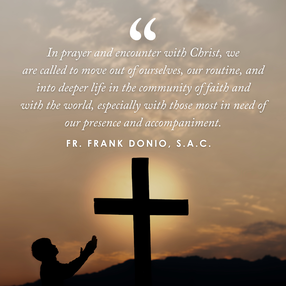 “When we become creatures of habit and grow bored, and the mission becomes a ‘job’, it is time to open our hearts to that second call of Jesus, for he never stops calling us. He calls us to make us set out; he calls us to remake us. Do not be afraid of this second call of Jesus.” - Pope Francis, Homily for Vespers with Bishops, Priests, Deacons, Consecrated Persons, Seminarians, and Pastoral Workers, World Youth Day, Lisbon, Portugal, August 2, 2023 Many people who read our newsletter engage in some type of ministry within the Church, full-time or part-time. Others engage in various types of apostolic work. All are serving the mission of Christ and the Church, each in the way in which they are called. Sometimes, as Pope Francis points out, “mission becomes a ‘job.’” We may need to recognize a “second call of Jesus.” He calls us to himself most profoundly in the Eucharist, whether at Mass or in adoration. In prayer and encounter with Christ, we are called to move out of ourselves, our routine, and into deeper life in the community of faith and with the world, especially with those most in need of our presence and accompaniment. Each of the reflections below given by seven bishops, including the President of the United States Conference of Catholic Bishops, Archbishop Timothy Broglio of the Archdiocese for the Military Services, is not simply for the time of World Youth Day. They are quite relevant to all on mission for Christ as we commit ourselves daily to living for him. We invite you to listen to them as part of your time of prayer or as you journey to others on mission. May the Charity of Christ urge us on! In Christ, Apostle of the Eternal Father, Fr. Frank When I was at a recent Bible study with friends, we prayed about and discussed the passage from Matthew 14:22-33 – the story of Jesus calling Peter out of the boat to walk to him on water. As Peter sees the wind and waves around him, his trust in Jesus begins to falter and he starts to sink. When he cries out for help, Jesus immediately catches Peter, saying, “Oh you of little faith, why did you doubt?” In many ways, we, too, are like Peter: cautiously trusting the Lord, but when tested in the chaos, we learn our trust isn’t as strong as it should be. This is where we can look to St. Bartholomew for guidance. St. Bartholomew (also known as Nathanael), whose feast day is August 24th, was one of the 12 Apostles mentioned in the Synoptic Gospels. While little is known of St. Bartholomew, we see his true personality in John 1:43-51. The apostle Philip was a friend of Bartholomew, an Israelite. As Philip tells Bartholomew that he, Andrew, and Peter found the Son of God, St. Bartholomew responds, “Can anything good come from Nazareth?” Later, Jesus says of him, “Here is a true Israelite. There is no duplicity in him.” Jesus also says he saw Bartholomew under a fig tree before Philip called him, leading us to understand Bartholomew was in prayer with the Lord. St. Bartholomew immediately answers, “Rabbi, you are the Son of God; you are the King of Israel.” This passage reveals St. Bartholomew’s blunt honesty. He is open about his doubts of any good coming from Nazareth, but does not hesitate in his belief when Jesus reveals himself. This is why Jesus calls St. Bartholomew an Israelite with no deceit. Through St. Bartholomew, we see qualities that Jesus praises: honesty, truth seeking, sincerity and thoughtfulness. These good attributes allow Jesus to come into St. Bartholomew’s life and build trust with him. Likewise, St. Bartholomew is able to open up to new perspectives and ruminations on spiritual matters. In Matthew 5:8, we learn from the Beatitudes, “Blessed are the clean of heart, for they will see God.” St. Bartholomew is a model to us of this purity of heart. When we seek truth, we can more clearly see God and respond to his call. Living apart from the truth dims our relationship with God and our ability to hear his call. Dishonesty makes life more difficult for us to know the truth, which is built on trust. The Catechism of the Catholic faith says that “placing our trust in Christ’s promises and relying not on our own strength, but on the help of the grace of the Holy Spirit” enables us to become heirs in hope of eternal life. Ultimately, God is truth itself. We learn from St. Bartholomew’s example that we can come to know God better in reflection through prayer. To know God through prayer is to know truth and therefore trust. This open line of communication with God unlocks our minds to explore different perspectives and gives us the ability and willingness to overcome critiques, which is necessary for evangelization. Even in the above passage from Matthew 14:22-33, where Peter walks out onto the water, we learn at the very beginning of the story that Jesus found time to pray and reflect in solitude with his Father before meeting with the Apostles in the boat. St. Bartholomew’s prayer led him to truth. He trusted in God and then shared that truth with others in order to convert them to Christianity. After Jesus’ ascension, St. Bartholomew traveled farther than most of the other Apostles. He visited Syria, Ethiopia, India, and Armenia, preaching the Gospel and God’s word. It is believed St. Bartholomew was martyred in Armenia. May we learn to trust God through St. Bartholomew’s example! **This post was originally published on August 24, 2017** I have friends that host an annual Epiphany party where each guest is gifted a word for the year. The word I received this year was wonder. “What a great word to carry through the year,” January-me thought. But, as we begin to make our way from summer to fall, I’ve all but forgotten about this word, let alone pondered it in prayer.
The Merriam-Webster dictionary defines wonder as “rapt attention or astonishment at something awesomely mysterious or new to one's experience.” There is something about newness and mystery that captivates us. We meet a child that has just been born after staying hidden in the womb for nine months or watch a sunset over the mountains and are struck anew by the splendor of God’s creation. However, it isn’t every day that we’re meeting babies or hiking in the Shenandoah Mountains. When we get swept away in the activity of everyday life the opportunities for and objects of wonder can feel few and far between. I doubt many of us would describe the tasks that make up our daily lives as “awesomely mysterious,” let alone “new.” Yet, wonder isn’t meant to be reserved just for special occasions. One of my favorite things about children is the sense of wonder that they naturally possess. Despite the ordinariness and repetition of their days, their lives are marked by wonder. As children go through the simple events that make up their days, they are able to see the awesome newness all around them: a colorful beetle in the garden, a new color made when mixing paints, sounding out a new word for the first time. It is true that as adults there may be fewer things for us to discover and learn; we've figured out how most things work and generally know what to expect from an event or situation. But, what if we still let ourselves be open to the wonder around us and approached situations with more curiosity? When we have conversations with friends, we can marvel at their goodness and how God is working in their lives. When we take the dog for a walk, we can leave our phone at home and soak in the sights and sounds around us. We can take time to cultivate a hobby or learn a new skill. These events might not be novel, but they can offer us an opportunity to slow down and see what newness God may be speaking into them. This sense of wonder can be cultivated in our spiritual lives, too. God wants us to wonder at Him, to be captivated by Him, to enter the mystery of His presence among us. The great mysteries of the Church aren’t matters to be solved or rationally understood; rather, they are truths meant to be pondered ever more deeply. What better disposition than one of wonder with which to enter into these mysteries? We can give our “rapt attention” and “astonishment” to Jesus’ True Presence in the Eucharist or to contemplating the ways God has worked in the lives of people throughout scripture. Like children encountering the newness right in front of them, we can ask God to fill us with a spirit of wonder when we go to pray or experience the sacraments. In this way He can transform the parts of our spiritual lives that may just feel routine and ordinary into moving encounters of His perpetual newness. In July, I had the opportunity to attend the Summer Leadership Development Program with The Lay Centre in Rome. I spent one week in the Eternal City and it was such a wonderful experience! Going into the week, I was not exactly sure what the program would entail. I knew that it was a leadership program for young people in the Church to better understand their call to leadership, but I was not sure what the actual program itself would be like. This also was the first time that I had traveled internationally by myself! I was both excited and nervous at the challenge. What do I do if my flight gets delayed? What if I am unable to find a taxi at the airport? What if I get lost trying to find the entrance to the Lay Centre? All these questions (and more) circled around in my mind as I prepared for the trip. I boarded my flight at JFK Airport in New York and arrived smoothly in Rome on a sunny Friday afternoon (first fear of my flight getting delayed was avoided) and I successfully found a taxi to take me from the airport to the Lay Centre (second fear tackled). Finally, I was welcomed into the Lay Centre by their wonderful staff and began to settle myself into my new home for the next week (third fear conquered!). My first day and a half in Rome was free time, to adjust to the time difference and explore the city. I enjoyed walking past the Colosseum from our accommodations at the Lay Centre and over to the Trevi Fountain where I would get a gelato to enjoy on my walk back. It was such a great start to the trip! I also began to chat with the other participants of the program; we all stayed in the same hall with our own rooms and shared a bathroom with one other person. It was a similar layout to what you may see in a dorm room. I was one of four participants from the United States, the other twenty or so were from all over the world - from Cameroon to South Korea to Afghanistan - there were so many different cultures to learn from. I really saw the work of the Lord through all these people. It was so interesting to see that we all come from different backgrounds, but all had one thing in common - a love for the Church. We spent the week learning about leadership: What does it mean to be a leader? How can we be effective leaders? What does it mean to allow the Lord to move us as leaders? How can we lead with the morals Jesus taught us? We sat through various presentations from different religious communities and learned about the models of leadership through St. Benedict and St. Ignatius Loyola, as well as reflected on our own individual leadership styles and strengths. All of these discussions bore many fruits throughout the weeklong program and spurred great conversations about the importance of faith in leadership. Each of us brought our own, individual idea of leadership and we were able to grow on models that others brought to the table. Each day, we began with morning prayer, and we were encouraged to volunteer to share a prayer exercise with the group. One of my favorites was learning and participating in the Taize prayer. I have always enjoyed prayer through music, but I had never experienced this meditation technique. It was very calming and helped me to put my focus on the Lord. We ended each day with evening prayer followed by dinner, which we ate together as a group. Sharing meals together as a group and telling stories from our own experiences and backgrounds really helped to strengthen our bond as a group. Every meal was filled with inquisitive insight, laughter, and joy (as well as delicious home cooked Italian food!). I had never lived in a community before; I had lived in a dorm for several years in college, but I had never experienced community life like this. It was such a great experience! Everyone was so welcoming, warm, friendly, and always went out of their way to help one another. Whether it was helping me carry my suitcase to the fourth floor, filling up my glass at dinner, or lending me a bus ticket, I was struck by the selflessness of others. In reflection, I experienced so much growth during this one week abroad. I grew in my confidence of solo travel, I grew in my professional life by learning various leadership skills, I grew in my personal life from meeting so many people of different cultural backgrounds, and I grew in my spiritual life through our studies of the saints. I am so thankful to have been given the opportunity to attend the Summer Leadership Development Program and will continue to grow from the experience for years to come.
St. Maximilian Kolbe is heralded as the Saint of Auschwitz. In a remarkable act of love and humility, the Polish priest offered his life for a father when faced with execution in the Auschwitz concentration camp during the Holocaust. While we often define our saints by one ultimate act – their martyrdom, a profound miracle, or a moment of boldness for God – St. Maximilian, like our other saints, is so much more than one supreme moment of magnanimity. St. Maximilian Kolbe was a mover, a shaker, a deal maker, and an innovator, especially when it came to Catholic media. Allowing his full story to illuminate his sainthood will help us all become more in tune with our own call to do more – to be more – for the glory of God. If we only think about St. Maximilian as the Saint of Auschwitz, it can be limiting, but oddly freeing. It’s easy to think, “Wow, what an incredible act of love for the other!” while knowing that most of us will never have that moment of choice in our lives. It’s easy to be inspired by him and revere him for his great courage rather than internalize how this might affect us day to day. We see the grandeur of other saints too and we forget that they were normal people with interests and complicated lives like ours. Keeping them on a pedestal, while probably enhancing our prayer life, hinders us from relating to the saints and allowing their example to influence the monotony of our daily lives. In the last ten years, there is a sort of movement in the Catholic Church today to fully illustrate the life of the saints, and most of this is done through Catholic media. My first experience with this was when I saw Word on Fire and Bishop Robert Barron’s “Pivotal Players” series, which tells the stories of twelve pivotal saints in the places where they grew up sharing how they became the people that made them saints. My husband and I hosted several people from our young adult group at our house to watch this series together and then discuss how these saints are relevant for our lives today. Of course this bore tremendous fruit, not only in the beautiful conversation and personal stories, but in a small group fluctuating between six to ten people each week, two couples emerged from that group who ended up getting married. We were thrilled that they not only met in our home, but that the stories, legends and lives of the saints was the catalyst for them discovering their vocation as husband and wife. That series grounded these wonderfully holy saints to be real for us; their miracles continue as hearts are moved by learning about who they are. This brings me back to St. Maximilian Kolbe. After watching this series, I started taking time on a saint’s feast day to read the blurbs about who they are, where they came from, and their supreme act. I would take the short five minutes to envision that time, their challenges, and how they rose above conflict for their ultimate “yes” to God’s call. For St. Maximilian, I challenge you to take some time to read his story today or watch some videos about him. There are also some great films about his life. Something about him that animates my work (MAX Studios is named after St. Maximilian Kolbe) is his awareness of the importance of media. This was the early 1900s (St. Maximilian died when he was only 47 years old) and you can imagine all the new media that was coming out at that time. St. Maximilian attended the Olympic games in 1936. He went to Berlin, not to see the competition, but because there was an exhibit showcasing television and technology. He said, “While building churches that are beautiful and spacious is important, without Catholic media, these churches will be empty.” How true is that even for today? That simple story resonates with our current time with such gravity that we have to take it to heart. Catholic media, while it can be contentious or annoying depending on your preferences, it’s undeniable that it bears fruit. In unexpected ways, the stories of the saints like St. Maximilian Kolbe – in written format, in dynamic video, in interesting podcasts – have tremendous meaning that supersedes time and space because the Holy Spirit moves through these narratives. In our Catholic storytelling, the saints become normal people, so that all people can see their universal call to holiness, and that call is realized through recognition of one’s vocation as called by Jesus Christ. I think back to those marriages that emerged from that small group. Maybe those couples would have met under other circumstances, but how incredible that a part of their story is an attraction to one another after studying the lives of our most revered saints – through the proliferation of dynamic Catholic media. Take time to know the saints who are honored in our church because their lives still perpetuate miracles beyond their earthly death. I believe St. Maximilian Kolbe is challenging us in this day and age to use Catholic media to its fullest to bring people to see their vocation in Jesus Christ as the ultimate calling. We have so much at our fingertips, that to engage in Catholic media, especially in community to share and discuss, it brings to life and grounds our rich and vibrant Scripture and Tradition. Today, we remember St. Maximilian Kolbe – a true innovator and evangelist. Now, go explore and share some Catholic media to celebrate him. Extras: National Shrine of St. Maximilian Kolbe Pivotal Players | Word on Fire The Amazing Story of St. Maximilian Kolbe by John Clark | Magis Center VIDEO: St. Maximilian Kolbe w/ Bobby Angel | Ascension Presents
Some weeks in the liturgical calendar are packed with all-stars! I am grateful that one of those weeks happens to be my birthday week. As I write this, I picture the saints lining up in order of their feast days just like we lined up in alphabetical order for lunch in elementary school. In the Cathedral of Los Angeles, Our Lady of the Angels, there is a beautiful tapestry that depicts the diversity of the saints as they stand side-by-side. If this lineup was based on feast day, St. Clare and St. Jane Frances would be next to one another. I imagine they would turn to one another and realize how much they have in common. Some of the many commonalities they share include having a best friend named Francis, founding a religious order, living in Europe, and finding great joy in serving the poor. In the Four Loves, CS Lewis writes, “Friendship is born at the moment when one man says to another ‘What! You too?’” When I studied abroad in Rome during college, I spent a weekend alone in Assisi walking in the footsteps of St. Francis and St. Clare. I prepared for this trip by reading a biography of St. Francis, I, Francis. For me, the most memorable part of the book was imagining Francis listening to Clare sing in the church choir and the way he felt when Clare shared his humble mission, chopped off her beautiful long hair, and donned a simple brown tunic. Visiting St. Clare’s incorrupt body in Assisi was astonishing; it seemed as if I could just wake her up from a nap and ask her all about her friendship with St. Francis. Her beauty radiates from her body today and I could only imagine what others experienced when they encountered her while she was alive. One day, while in grad school, I returned to my room after a retreat to find an icon of St. Jane Frances on my bed. My mom is named Jane Frances, so I was intrigued to learn more about this fascinating saint who experienced both married and religious life. She became a widow at thirty-two after her husband died in a hunting accident. On his deathbed, her husband forgave the man who killed him. Jane, however, was slower to forgive as she was deeply grieving. Eventually, she not only forgave the man, but also became the godmother of his child. Additionally, around this time, she began an eighteen-year-long correspondence through letters with Francis de Sales, who was only a few years older than her. He was the Bishop of Geneva and was the answer to her prayer for a spiritual director. They became fast friends and, as Francis wrote, “God, it seems to me, has given me to you. I’m more sure of it by the hour.” In my book Single Truth, I write how our “yes” is a gift and not an obligation. Love is focused on giving, not receiving. When we are grasping, we are not loving. While writing the book, I went on a yearlong dating fast. During this time, I felt more free to see men as brothers in Christ and not lose myself in the thought that everyone is a candidate for dating and marriage. I did not get distracted by what I may get from a person (i.e. relationship status or affection) and instead focused on being a friend. St. Clare and St. Jane were incredible models for faith and friendship. They both developed deep, authentic friendships with St. Francis of Assisi and St. Francis de Sales. They joined in their mission for the Kingdom and had friendships rooted in charity. To bring our focus back to the tapestry at Our Lady of the Angels, it is essential to notice how the saints are all facing the altar. St. Peter teaches us that keeping his eyes on Jesus allowed him to walk on water, but when he forgot who he was walking to, he sank. In our friendships, especially with the opposite sex, we can get distracted by our fleshly desires and human understanding. We grasp at and rush into something that is often less than what God intends for us. “It’s beautiful to be able to love on earth as we shall love in heaven.” – St. Francis de Sales Article 2347 of the Catechism reads, “The virtue of chastity blossoms in friendship. It shows the disciple how to follow and imitate him who has chosen us as his friends, who has given himself totally to us and allows us to participate in his divine estate. Chastity is a promise of immortality. Chastity is expressed notably in friendship with one's neighbor. Whether it develops between persons of the same or opposite sex, friendship represents a great good for all. It leads to spiritual communion.” Charity is a love that is directed outwardly instead of inwardly. If two people in a relationship try to out-love, out-forgive, and out-serve one another, there is a high probability that they will overcome whatever obstacles they face. St. Francis de Sales wrote to St. Jane Frances, “Never will it be possible for anything to separate me from your soul: our bond is too strong. Death itself would be incapable of undoing it.” As Easter people, we believe that death is not the end for those in friendship with Jesus. When loved ones pass away, we find hope in the Resurrection and look forward to seeing them again in Heaven. These four saintly friends have been powerful intercessors in this life and I am excited to share fellowship with them for eternity! Promotional Image Credit: https://angelusnews.com/voices/why-the-saints-can-do-great-things/
Today, August 8th, is the feast day of St. Dominic de Guzman, founder of the Order of Preachers—the Dominicans. St. Dominic was born around the year 1170, and he came from a noble and devout family. After studying at the University of Palencia for ten years and becoming a priest, Dominic eventually went to southern France to fight the Albigensian heresy. While there, he determined that a return to the preaching style of the Apostles in the time of Christ—to engage with individuals, to go where the Spirit led them, and to live simply—would most effectively preach the Gospel message and bring heretics and converts back to the faith. After spending several years evangelizing and preaching, Dominic had acquired a small band of followers. With them, he founded a religious order, basing it on the Rule of St. Augustine and giving it the mission of “preaching and the salvation of souls,” with an emphasis on the importance of spiritual and intellectual formation. The Order of Preachers was officially recognized by Pope Honorius III in late 1216. In a time when opposing sides often resorted to violence, St. Dominic chose to combat the Albigensian heresy through open dialogue rather than bloodshed. By having a deep understanding of Scripture, tradition, and philosophy, and by engaging with individuals on an intellectual and moral level, he was able to bring back into the faith many of those who had fallen into error. The Order of Preachers that he founded continues to embrace these principles by preparing preachers who are “intellectually informed and pastorally competent.” St. Dominic chose to settle the first members of his order in university cities so that they could gain the intellectual training they would need to become engaging and morally compelling preachers of God’s word. The Order of Preachers, to this day, still heavily emphasizes the importance of spiritual and intellectual formation in preparation for their pastoral work. The Dominican House of Studies in Washington, D.C. continues in the Dominican tradition of establishing communities of Dominicans near universities. Dominicans residing at the House of Studies teach at nearby at The Catholic University of America, assist with Masses at parishes in the Archdiocese of Washington, and produce a journal. Reading about the origins of the Dominicans and their continued success reminds me of the important place that religious study ought to hold in even the layman’s spiritual life. While we cannot all get degrees in theology, feeding the intellectual curiosity about our faith can lead us deeper into our relationship with God and to a better understanding of his truth. Reading more about our faith, or about the lives of the saints we wish to emulate, can also better equip us to evangelize when the opportunity arises. While we may not be reading the Summa Theologica or the Catechism cover to cover, there is a plethora of material—from papal encyclicals and the core documents of Vatican II, to letters and diaries of the saints—available for us to deepen our own understanding of the faith and to be able to share it with others. I myself have been inspired by reading about the life of St. Dominic de Guzman and the work of the Order of Preachers. As a result, I have decided to further engage my faith through more rigorous spiritual reading. I think a good place to start is with a course of study on one’s vocation—for me, that means marriage and parenthood, and thus my “to read” list includes Three to Get Married by Fulton Sheen and the papal encyclicals Castii Conubii and Humanae Vitae. What will you read to engage more deeply with your faith? Question for Reflection: How can the life of St. Dominic and his emphasis on intellectual formation help you deepen your spiritual life? **This post was originally published on August 8, 2017** Author |
Details
Archives
July 2024
Categories
All
|
About |
Media |
© COPYRIGHT 2024 | ALL RIGHTS RESERVED

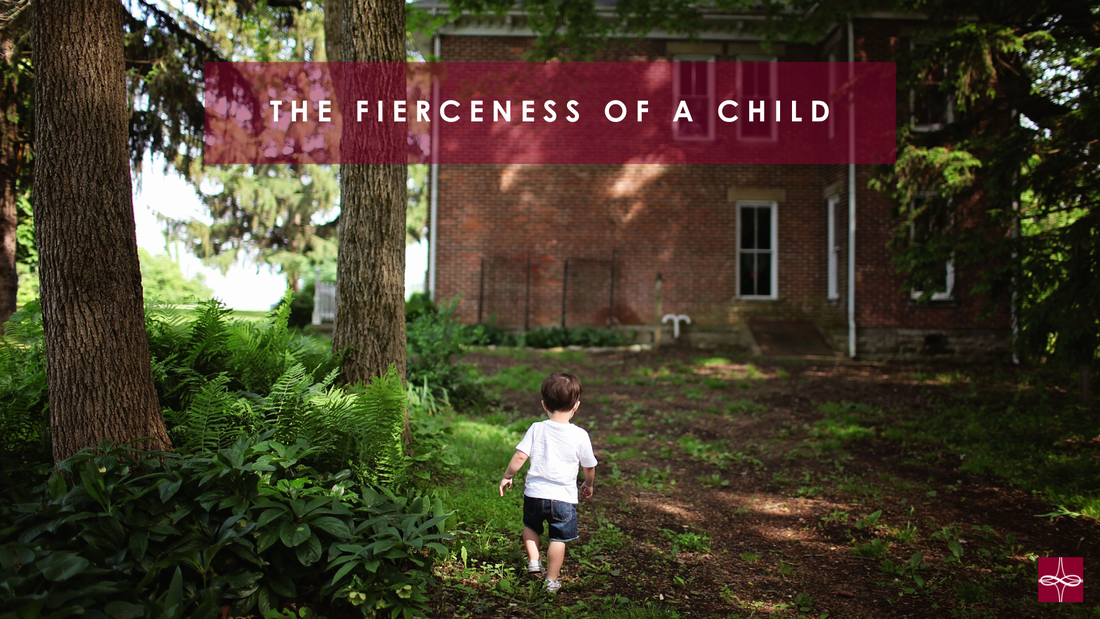

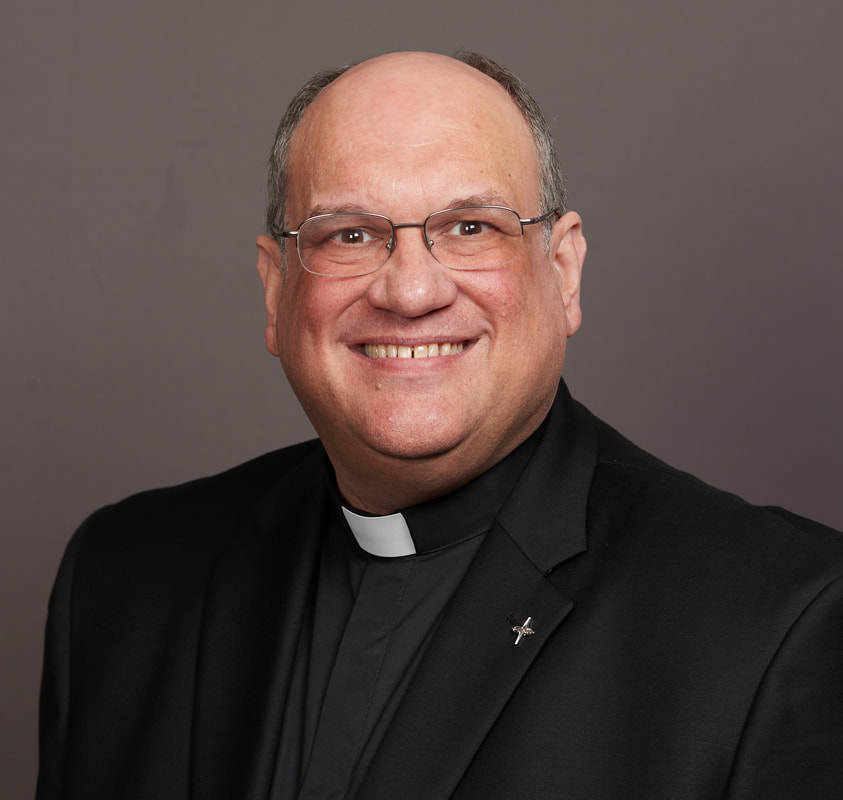
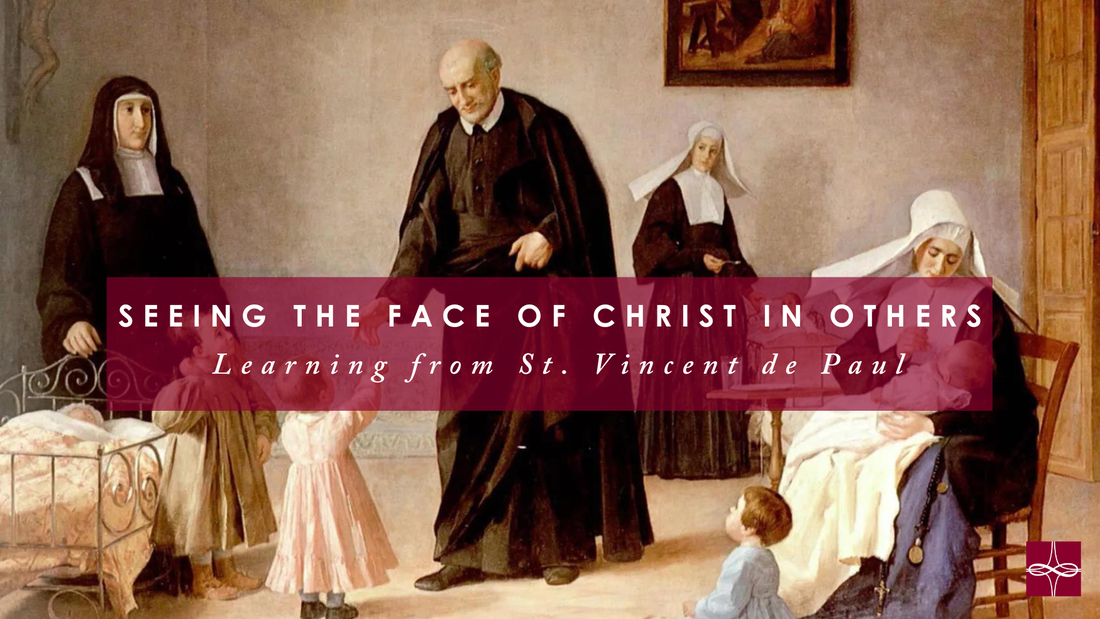

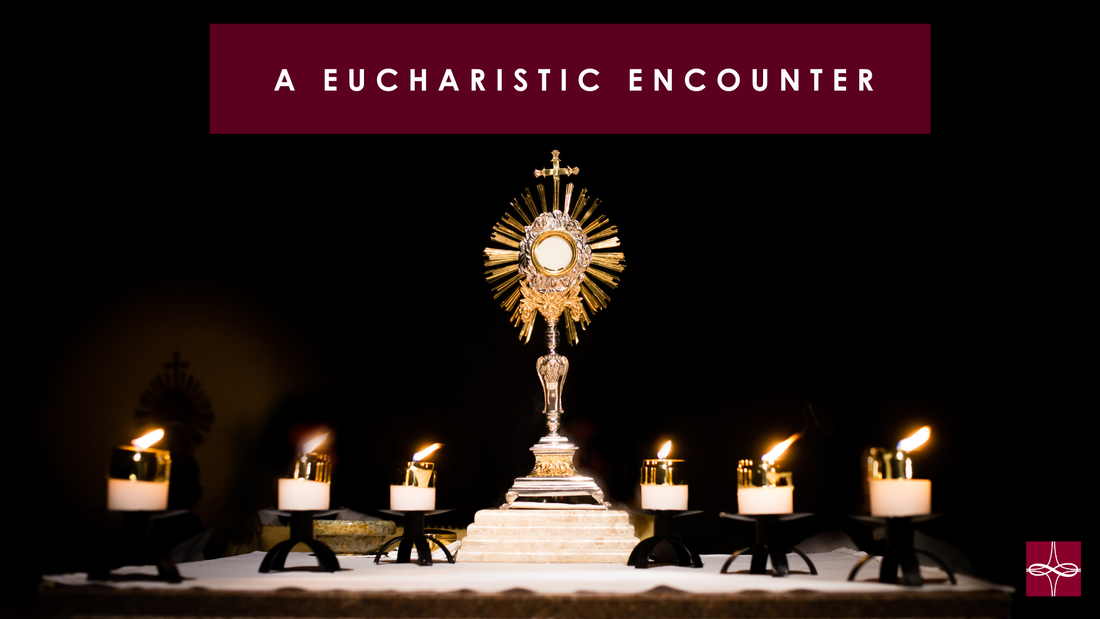
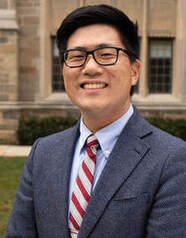
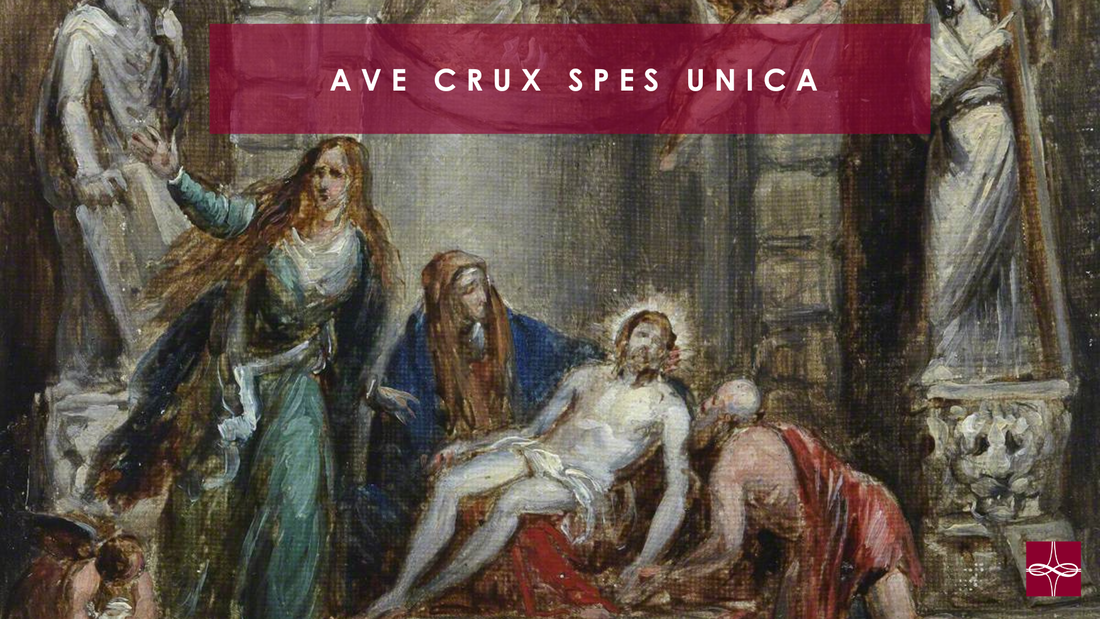
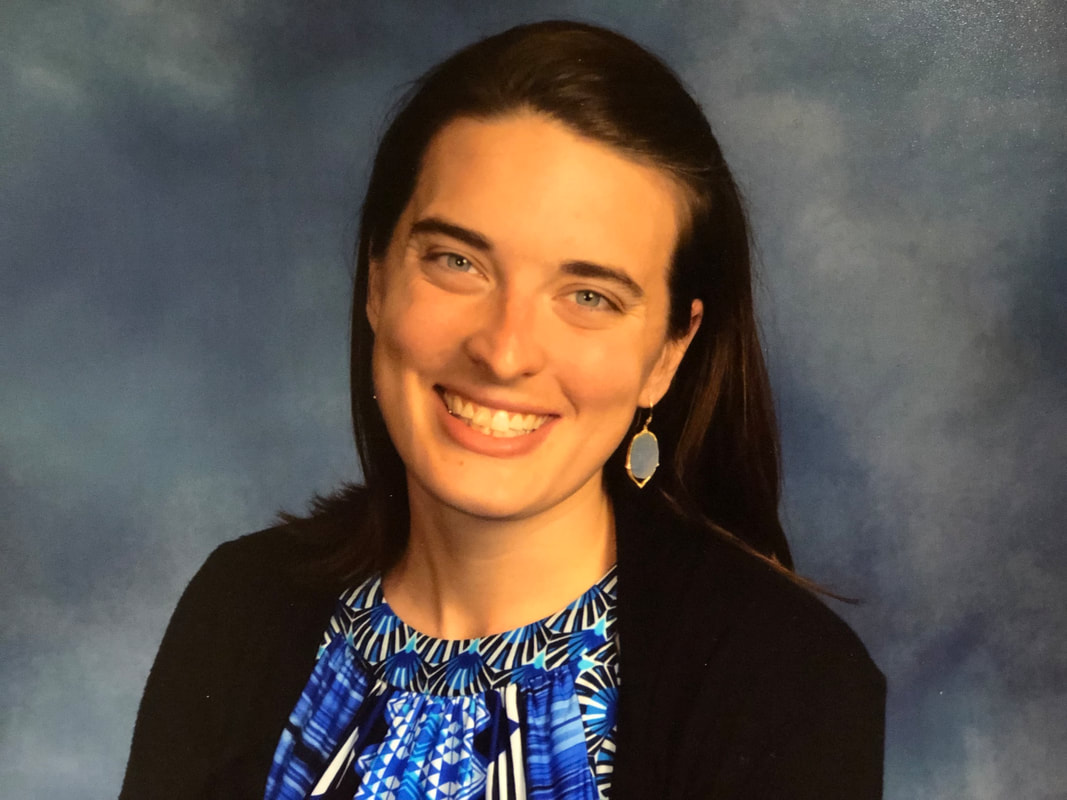
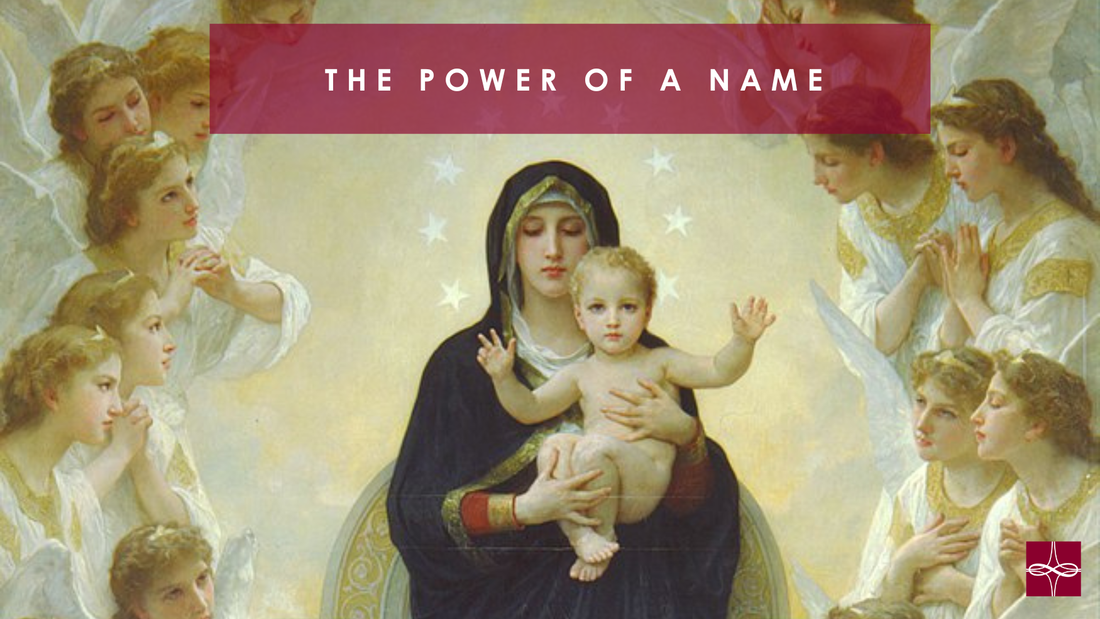

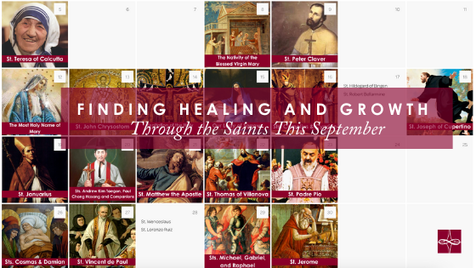

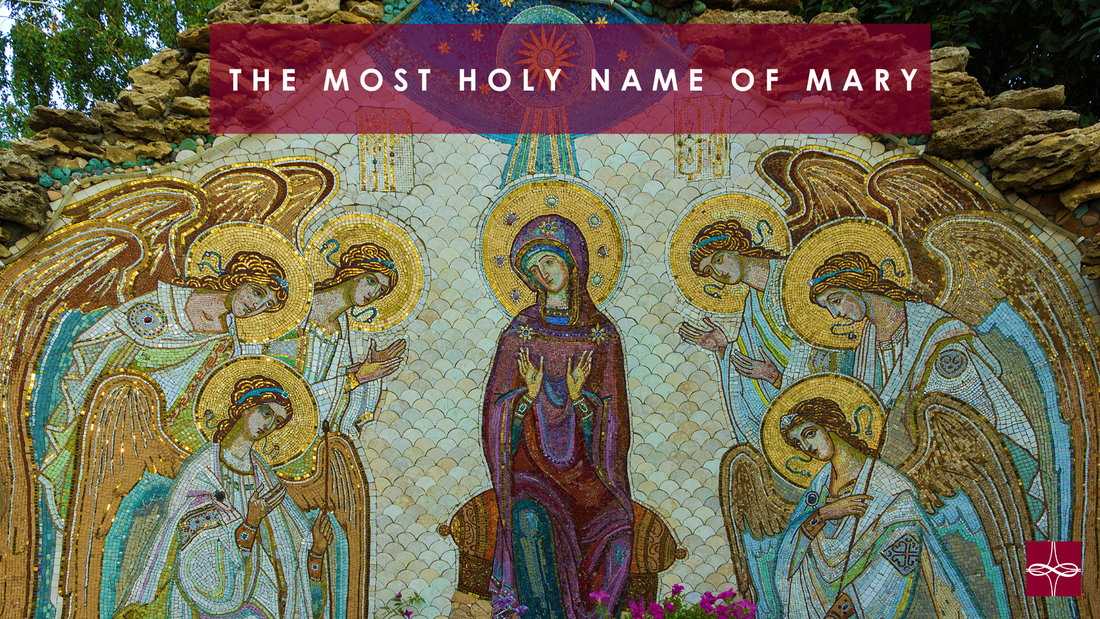
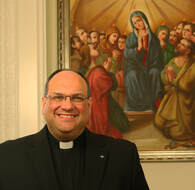
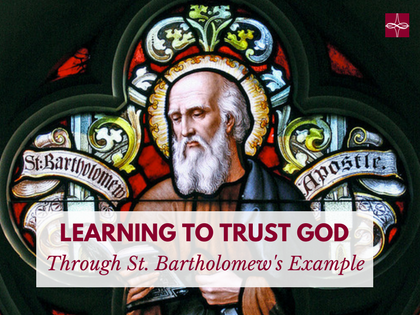



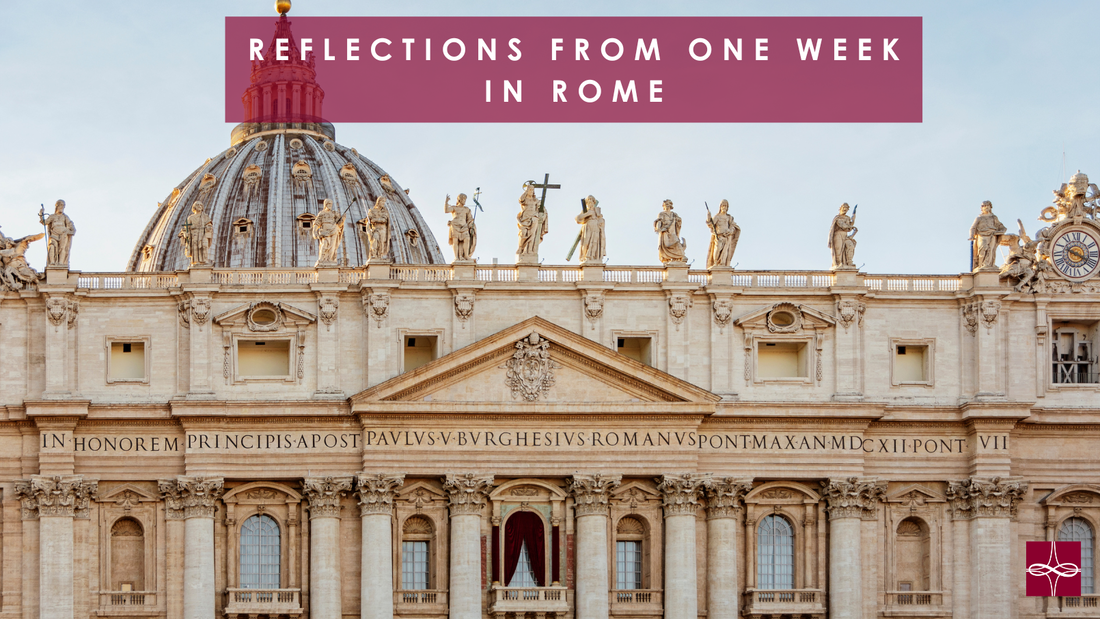

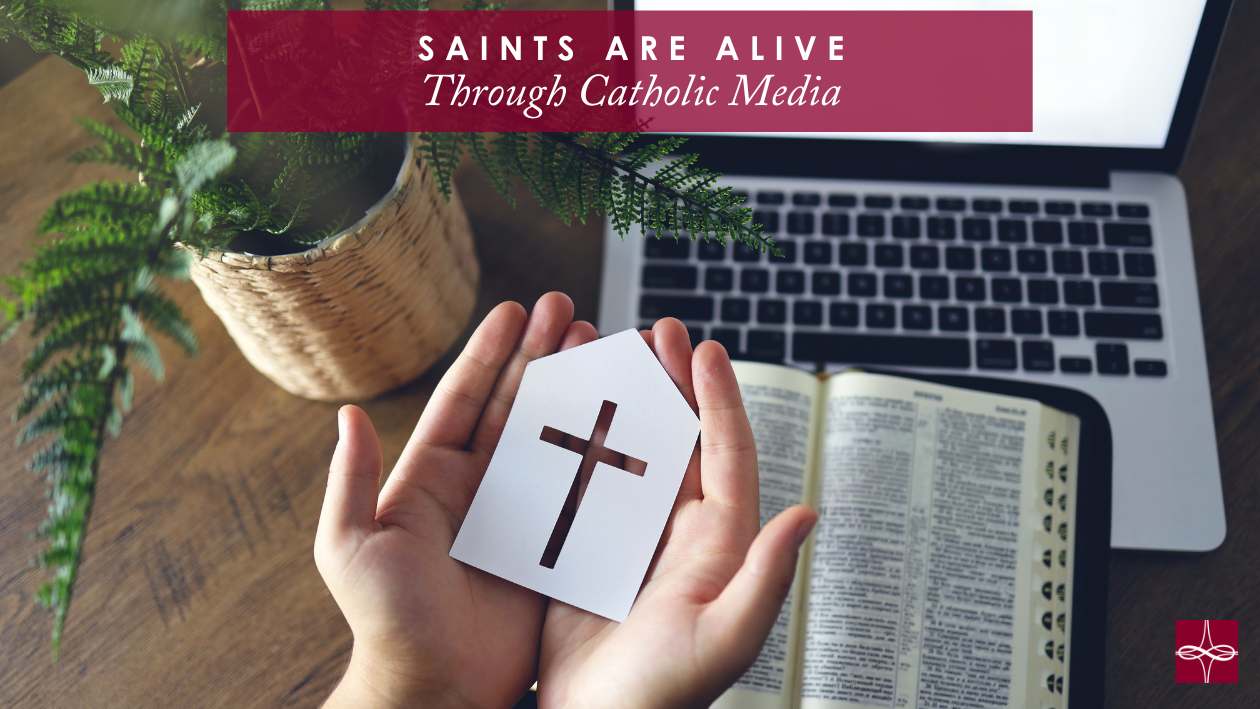

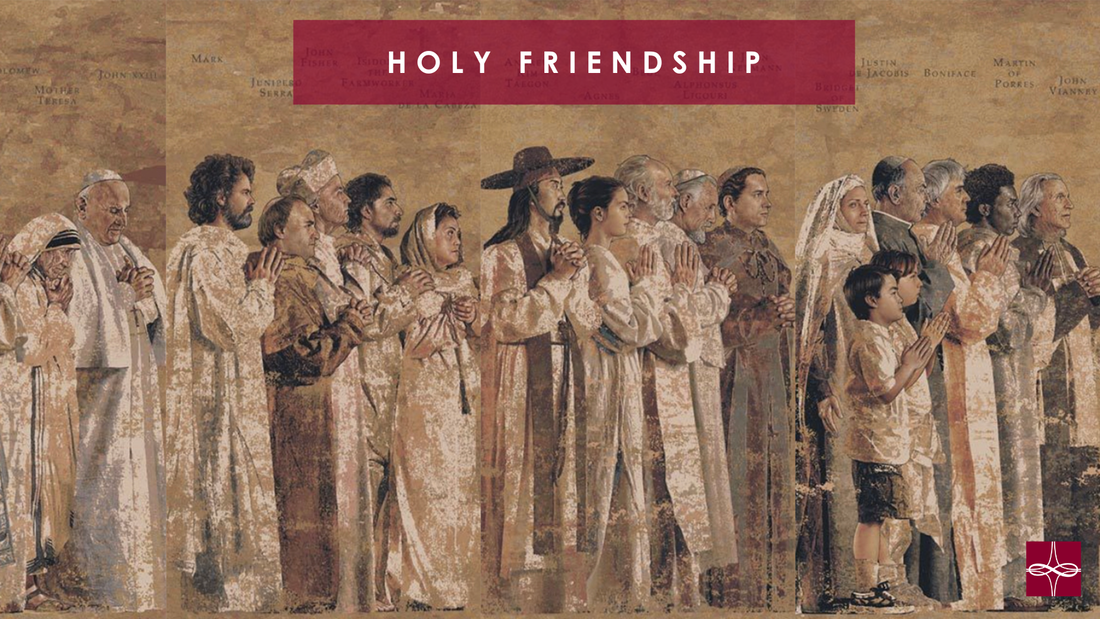
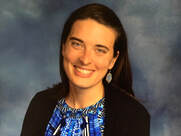
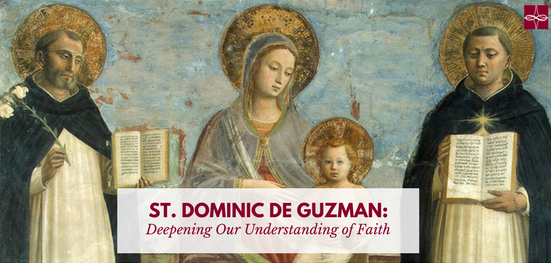

 RSS Feed
RSS Feed